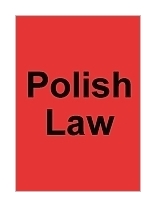|
||
• wydawnictwa polskie
• Zamów informacje o nowościach z wybranego tematu • kontakt
• Cookies na stronie |
CHEQUES LAW PRAWO CZEKOWE /POLISH LAW/EUROTERMBANK THE EUROPEAN TERMINOLOGY STANDARDwydawnictwo: TRANSLAW , rok wydania 2011, wydanie Icena netto: Uwaga: cena netto + 23% Vat. Wszystkie akty prawne są tłumaczone z zastosowaniem spójnego zbioru terminologii prawnej PolTerm, starannie opracowanego pod okiem prawników, ekonomistów, rodowitych znawców języka i terminologów. Spójność zbioru oznacza, że terminowi w języku polskim odpowiada tylko jeden ekwiwalent w języku angielskim. Profesjonalnie opracowana terminologia ze zbioru PolTerm weszła w skład bazy EuroTermBank powstałej na zlecenie Komisji Europejskiej. Na życzenie zamawiającego tłumaczenia mają formę zbindowanego wydruku w formacie A4 lub formatu PDF /adobe/ na płycie CD lub formatu PDF /adobe/ przesyłanego drogą e-mail. The EuroTermBank project focuses on harmonisation and consolidation of terminology work in new EU member states, transferring experience from other European Union terminology networks and accumulating competencies and efforts of the accessed countries. The project will result in a centralized online terminology bank for languages of new EU member countries interlinked to other terminology banks and resources. Although EuroTermBank is addressed directly towards Estonia, Hungary, Latvia, Lithuania, and Poland, the project is open to other new EU member states and interested countries and organizations outside EU. example: CHEQUES LAW XX. 1 ACT of 28 April 1936 CHEQUES LAW (Dziennik Ustaw 1936, No. 37, item 283 with subsequent amendments: Dziennik Ustaw 1997, No. 88, item 554; 2006, No. 73, item 501) SECTION I. ISSUE AND FORM OF A CHEQUE Article 1. A cheque shall contain: 1) the term “cheque” in the text of the document itself, in the language in which it was drawn; 2) an unconditional order to pay a stated sum of money; 3) the name of the person who is to pay (drawee); 4) a specification of the place of payment; 5) a specification of the date and place of issue of the cheque; 6) the signature of the drawer of the cheque. Article 2. A document without one of the features indicated in the preceding Article shall not be considered a cheque, save for the cases specified in the following paragraphs. In the case of lack of a separate designation, the place specified next to the name of the drawee shall be considered the place of payment. If several places are specified next to the drawee’s name, the cheque shall be payable in the place specified first. In the absence of such a specification or any other specification, a cheque shall payable in the place of issue. A cheque without specification of the place of issue shall be considered to have been drawn in the place specified next to the drawer’s name. Article 3. A cheque may be drawn to the banker who has the drawer’s funds at disposal, under an express or implied contract authorizing the drawer to dispose of such funds by means of a cheque. However, a document issued in contravention of this provision shall nevertheless be valid as a cheque. In cheques issued and payable in Poland only the banker may be indicated as the drawee. A payment order which does not comply with this provision shall be invalid as a cheque. Article 4. A cheque shall not be subject to acceptance. A mention of acceptance put on a cheque shall be considered not to have been written.
Księgarnia nie działa. Nie odpowiadamy na pytania i nie realizujemy zamówien. Do odwolania !. |


